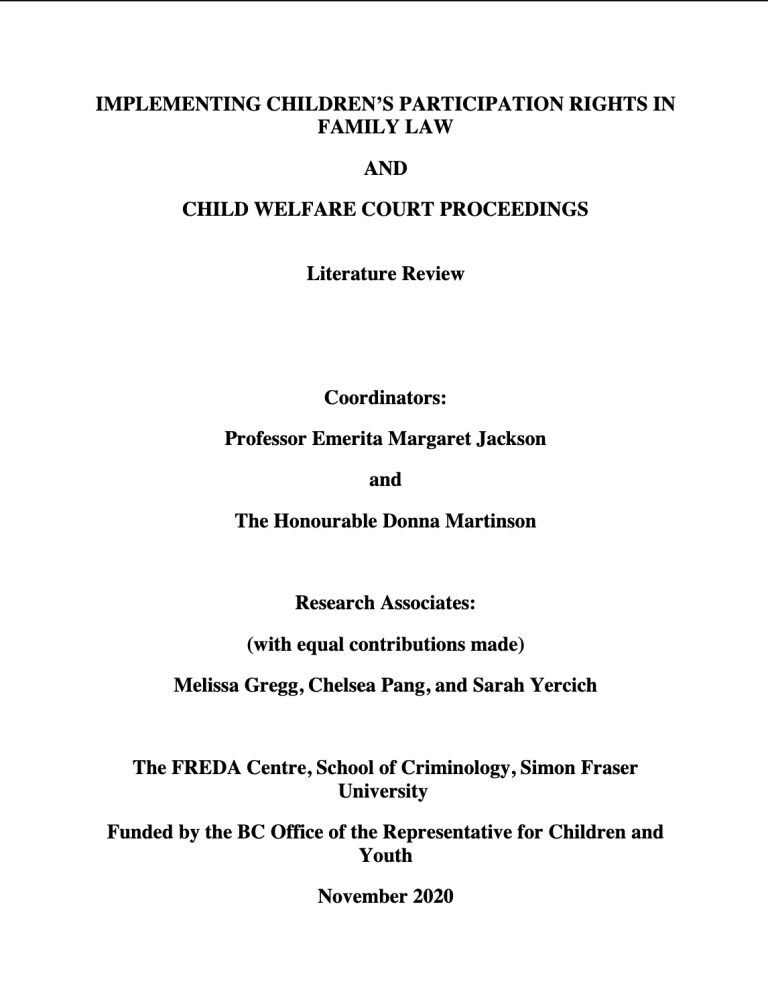1 search result
for
Public sector
Enhanced awareness and training
Education and training for legal professionals
Recommendation 5: The Canadian legal system also requires specialised training of professionals working with children, including mental health professionals, lawyers, and judges (Bala & Birnbaum, 2019; Collins, 2019; Paetsch et al., 2018). This is particularly important for legal professionals working on cases involving parental alienation and/or family violence (Elrod, 2016; Martinson & Jackson, 2016). These types of cases require judges and mental health professionals who are experienced in discovering and addressing problems in the family, as there can be multiple reasons for a child refusing contact with a parent or guardian, including family violence that can continue to put the child at risk if left unaddressed in custody and access decisions (Elrod, 2016; Martinson & Tempesta, 2018).Specific recommendations for children’s legal counsel include: ensuring democratic communication, in which lawyers and child both share information about themselves to build trust in preparation for proceedings; having lawyers inform children about the court process and what it means to have a lawyer represent them; having lawyers pose questions to children to better recognize how children understand the court process; and getting lawyers to emphasize flexibility in the child’s options to share their views, not share them at all or change their instructions to the lawyer (Bala & Birnbaum, 2019; Koshan, 2020; Horsfall, 2013; Paetsch et al., 2018). Those working at family courts should receive specialised training on family violence and high-risk cases, which can have a substantial impact on children’s rights (Koshan, 2020; Martinson & Raven, 2020a). From a scholastic perspective, much more research is needed to understand which of the many strategies implemented across Canada (and the world) might be most helpful to children’s legal participation (Birnbaum & Saini, 2012). This requires ongoing cooperation and collaboration between the legal and academic communities, to guarantee specialised and sensitised approaches to this topic.
-
Category and theme:
- Access to justice ,
- Accessibility ,
- Accessible services and technology ,
- Ageism ,
- Courts ,
- Decolonization and Indigenous rights ,
- Discrimination and hate ,
- Human rights system ,
- Indigenous children and youth in care ,
- International human rights ,
- Policing and the criminal justice system ,
- Poverty and economic inequality ,
- Public services
Audience:
Groups affected:
Location of recommendation:
